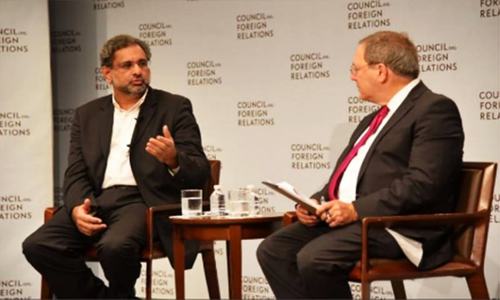ISLAMABAD: In an attempt to bridge the growing trust deficit between the two neighbouring countries, Chief of the Army Staff General Qamar Javed Bajwa will visit Afghanistan on Sunday (today) to hold discussions with Afghan authorities.
Sources told Dawn that the army chief would meet President Ashraf Ghani and discuss matters pertaining to the fight against the common enemy — militancy and terrorism.
Besides discussing ways and means to bolster border security measures — a long-standing demand from the Pakistani side — Gen Bajwa is also likely to renew Islamabad’s offer to impart training to Afghan troops and police personnel in Pakistan.
The army chief is likely to emphasise the need to use dialogue to removing all bilateral differences.
Meeting with Afghan president to focus on common enemy of militancy and terrorism
The army chief’s itinerary has not been made public, and Inter-Services Public Relations chief Maj Gen Asif Ghafoor was not available for comment.
Relations between Pakistan and Afghanistan have been strained for some time; Islamabad alleges that the militant Islamic State (IS) group, Tehreek-i-Taliban Pakistan (TTP) and other militant groups are operating from bases inside Afghanistan, and has provided specific names of the militants it wants the Afghan government to act against.
Kabul also levels similar charges, saying that it is suffering at the hands of Taliban groups and other militants operating from inside Pakistani territory. But Islamabad has always denied such accusations, insisting that a strong and stable Afghanistan is in its best interests.
Pakistani authorities maintain that militants fleeing security operations have taken shelter in Afghanistan and are plotting attacks against the country with the help of Afghan intelligence.
The Quadrilateral Coordination Group, which includes the two countries as well as the US and China, has been dysfunctional for well over a year now.
The US, which has been busy with a review of its policy on Afghanistan and South Asia, has stayed away.
However, a fresh tripartite meeting — without Beijing — held in Kabul earlier this month renewed all parties’ resolve to eliminate IS from the region and identified “information sharing, complementary efforts and enhanced cooperation” as the main areas for cooperation.
In a talk at the Asia Society in New York earlier this week, Foreign Minister Khawaja Asif had criticised US attempts to single out Pakistan for all ills plaguing war-ravaged Afghanistan.
Pakistan, he said, had in the past done all it could to facilitate a political settlement in Afghanistan, making sure that Pakistani soil was not used against any country.
However, he maintained that Islamabad could not take responsibility for Afghanistan’s peace and security and be asked to achieve what the combined strength of some of the most powerful and richest countries could not accomplish.
Published in Dawn, October 1st, 2017














































